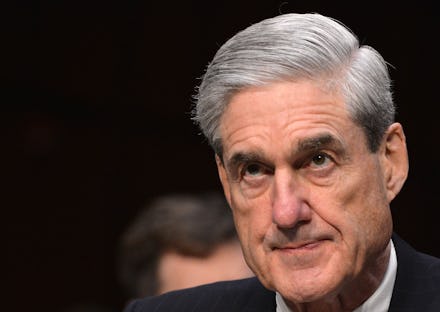Mueller probe: 12 Russian intelligence officers indicted over 2016 election interference

A grand jury has indicted a dozen Russian intelligence officers on the recommendation of special counsel Robert Mueller as part of his probe into the Kremlin’s meddling in the 2016 presidential election, Deputy Attorney General Rod Rosenstein announced Friday.
The 12 Russians — each of whom were associated with the GRU, a Russian intelligence agency, according to the indictment — allegedly conspired with each other to “gain unauthorized access into the computers of U.S. persons and entities involved in the 2016 U.S. presidential election, steal documents from those computers and stage releases of the stolen documents to interfere with the 2016 U.S. presidential election.”
According to the special counsel, the Russian military intelligence officers “used a variety of means” to hack into the email accounts and computer networks of members of the Hillary Clinton campaign and the Democratic Party.
They also released the stolen documents via the fictitious online personas “DCLeaks” and “Guccifer 2.0.” Roger Stone, an ally of President Donald Trump, interacted with the latter during the 2016 campaign.
In a statement during a press conference Friday, Rosenstein said that although the indictment did not include allegations the conspiracy impacted the result of the election, the U.S. should hold responsible those behind the election meddling and keep the probe free from partisan attacks.
“Our response must not depend on which side was victimized,” Rosenstein said. “We need to work together to hold the perpetrators accountable.”
While Friday’s indictment does not include any criminal allegations against a U.S. citizen, the charges note that Guccifer 2.0 allegedly communicated with “U.S. persons about the release of stolen documents.”
It also alleges Guccifer 2.0 released some of the stolen documents through a “website ... that had previously posted documents stolen from U.S. persons, entities and the U.S. government” — possibly a reference to WikiLeaks.
The Trump campaign had numerous direct and indirect interactions with the organization. Donald Trump Jr., the president’s eldest son, had communicated with WikiLeaks in 2016 and promoted leaked documents about Clinton the organization had published. Trump himself had praised WikiLeaks on numerous occasions.
According to the indictment, the Russians — using the Guccifer 2.0 persona — interacted with a “person who was in regular contact with senior members” of the Trump campaign on several occasions in the months before the 2016 election.
An unnamed “candidate for the U.S. Congress” also requested documents from Guccifer 2.0, according to the indictment. The online persona allegedly provided the candidate with “stolen documents related to the candidate’s opponent.”
Rosenstein said he briefed Trump on the charges earlier in the week.
“The president is fully aware” of the indictments, Rosenstein said.
Trump, who had yet to comment on the indictments as of early Friday afternoon, has regularly cast doubt on Russia’s election interference and routinely describes the Mueller probe as a “witch hunt.”
Rudy Giuliani, the face of Trump’s legal team, said in a tweet Friday that the indictments were “good news for all Americans” and suggested the charges vindicate the president.
“The Russians are nailed. No Americans are involved,” Giuliani tweeted. “Time for Mueller to end this pursuit of the President and say President Trump is completely innocent.”
The White House also claimed the charges show Trump is innocent, saying in a statement that “this is consistent with what we have been saying all along.”
“Today’s charges include no allegations of knowing involvement by anyone on the campaign and no allegations that the alleged hacking affected the election result,” a White House spokesperson said.
However, the indictment does not clear Trump from possible wrongdoing. On the contrary, elements of the special counsel’s description of the charges against the Russian intelligence officials raise significant questions about potential ties between the Trump campaign and the Kremlin.
Trump called on Russia in a press conference July 27, 2016, to produce more Clinton emails.
“Russia, if you’re listening, I hope you’re able to find the 30,000 emails that are missing,” Trump said.
Trump made that statement the same day the conspirators began a spear-phishing campaign targeted at Clinton’s personal office and presidential campaign, according to the indictment.
Rosenstein’s announcement came just ahead of a meeting between Trump and Russian President Vladimir Putin, with whom he has sought warmer relations. Trump said Thursday he would ask Putin about the Kremlin’s interference in the 2016 U.S. election, but pointed out Putin will likely deny it.
Democrats, including Senate Minority Leader Chuck Schumer (D-N.Y.), called on Trump to call off the summit after Rosenstein announced the charges Friday.
“Cancel the Putin meeting,” Schumer tweeted. “Now.”
Mueller has been investigating the Trump campaign’s ties to Russia, as well as possible obstruction of justice on the part of the president, for more than a year. He indicted three Russian agencies and 13 associated Russian nationals in February over the election meddling.
July 13, 2018, 3:56 p.m. Eastern: This story has been updated.